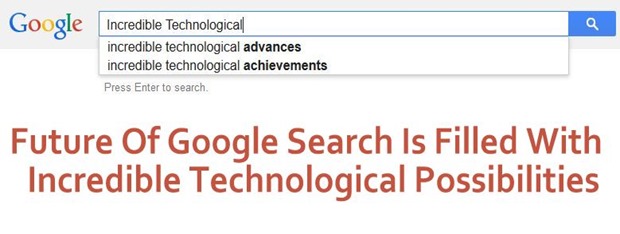Future Of Google Search Is Filled With Incredible Technological Possibilities
‘Google Fellow’; Head of Core Ranking Team and Senior Vice President in Google, Amit Singhal, was always fascinated with Star Trek, the magical American fiction TV and (later) movie series about galaxies and spacecraft. When he was growing up in Uttrakhand, he used to imagine about a computer which can give answers to any question you throw at it. As studied Engineering in IIT Roorkee and later at University of Minnesota and prestigious Cornell University, he kept his dream alive.
When he joined Google, he knew exactly what he was doing, and in his own words, “I imagined a future where a starship computer would be able to answer any question I might ask, instantly. We’re closer to that dream than I ever thought possible during my working life,”
At an event organized for the launch of Google’s ‘Indian Language Internet Alliance’ in New Delhi this week, he shared his and Google’s version of the future; wherein a search engine is not merely giving search results but understanding your mind, and delivering result when you want it, where you want it, in the way you want it.

He calls it’s the new-age, ‘Personal Assistant’ empowered with artificial intelligence, delivering ‘knowledge on demand’, even before people know that they want it! Combining Internet, Artificial Intelligence and Computing Power, Google is attempting something which no search engine has ever done.
As per Amit, such a search engine, which can also be labeled as a ‘Digital Personal Assistant’ will enhance the thought process of the user, and enable him to achieve more productivity, and more results instantly.
He said, “These are immensely exciting times with search technology going through an exponential period of change. Ultimately I believe this will give mankind healthier, happier lives, not just through wearable technology, but the sum total of information that will be within our reach to improve lives.”
Google & Artificial Intelligence
The incredible technological possibilities shared by Amit Singhal, with respect to Google and search engines on a whole, are not merely words of fiction. Google has been working on this platform, and they are very close at getting solid, tangible results which can change everything.
For example, in the month of January this year, Google spent $400 million (Rs 2400 cr) to acquire a London based Artificial Intelligence company: DeepMind.
As per their website, “DeepMind is a cutting edge artificial intelligence company. We combine the best techniques from machine learning and systems neuroscience to build powerful general-purpose learning algorithms.”
Google is not merely looking to deliver plain ol’ search result with blue links, but is looking to connect larger concepts with each other, using some advanced concepts of Artificial Intelligence which has never been used before in a search engine.
As per New York Times, this acquisition has made clear that Google is not satisfied with the search terms entered by its users, but now wants to know ‘why’ have they typed that, and how to provide information which connects with their ability to think and perceive information.
Last year, Google had joined hands with NASA to launch Quantum Artificial Intelligence Lab, which will research Artificial Intelligence using the super-advanced quantum computers. The lab has been equipped with D-Wave 2 computer which costs around $15 million (Rs 90 cr).
The research which Google is conducting in collaboration with NASA will attempt to understand the contextual meaning of the billions of GB of data which is being collected on a daily basis, and help decision makers to take the right step.
As per Colin Williams, director of business development and strategic partnerships at D-Wave, “Examples today include using supercomputers to model space weather, simulate planetary atmospheres, explore magnetohydrodynamics, mimic galactic collisions, simulate hypersonic vehicles, and analyze large amounts of mission data,”
The possibilities are endless when it comes to optimally using technology, and Google is showing us that this is just the start.
